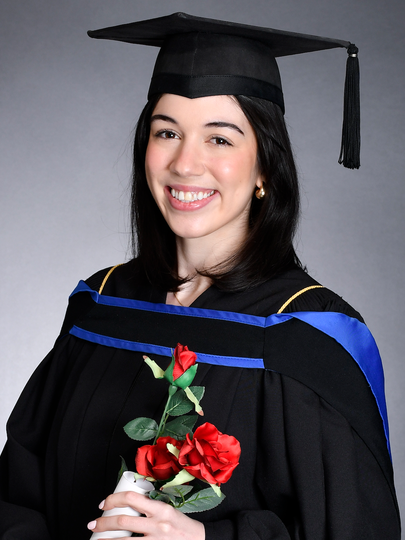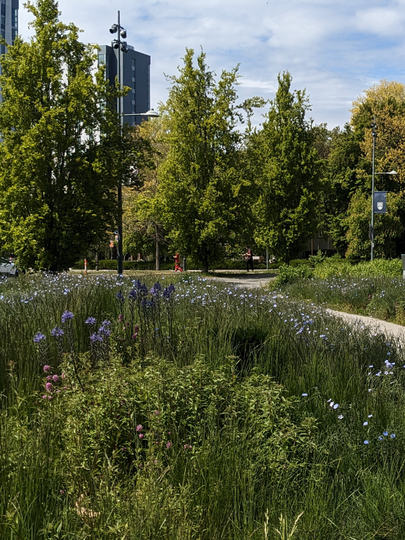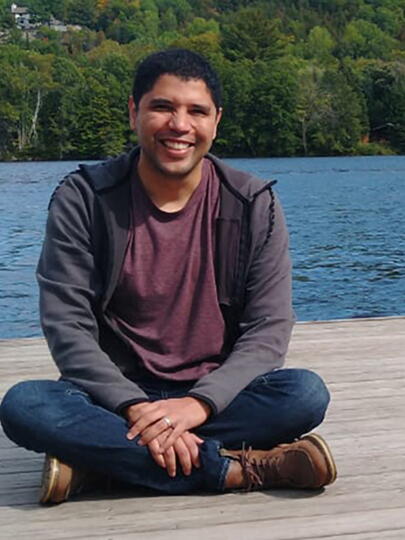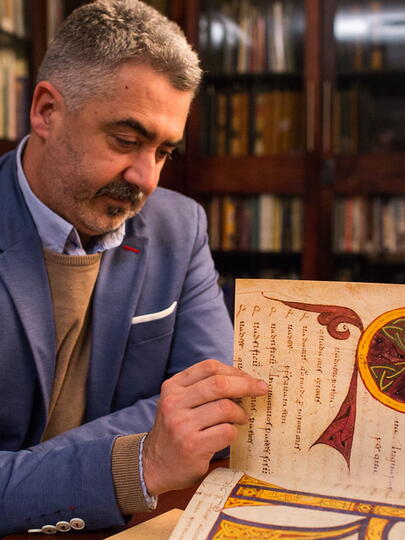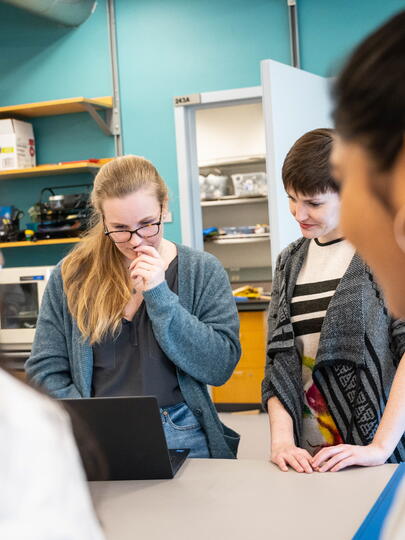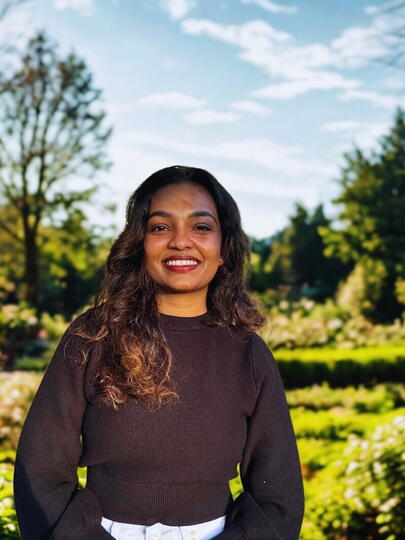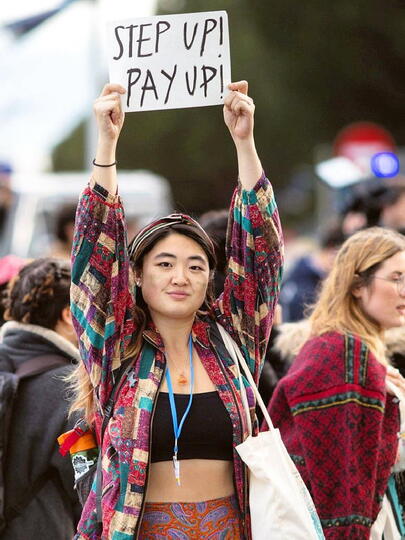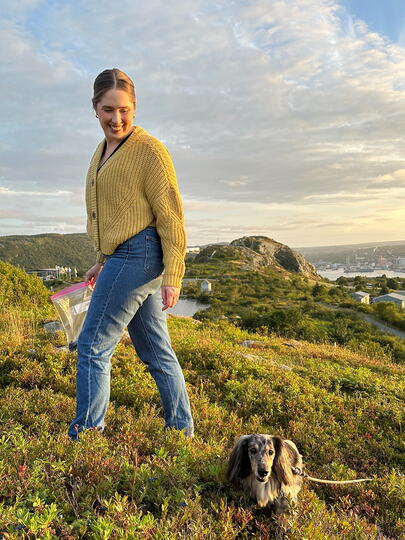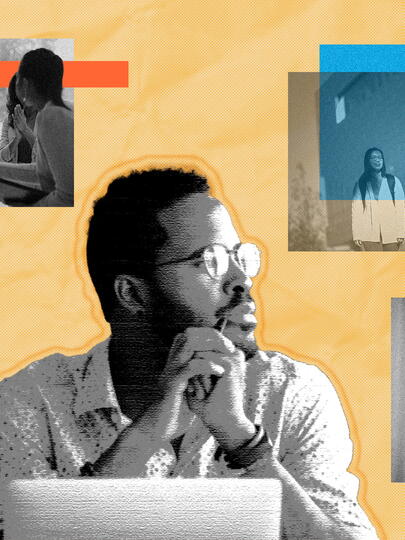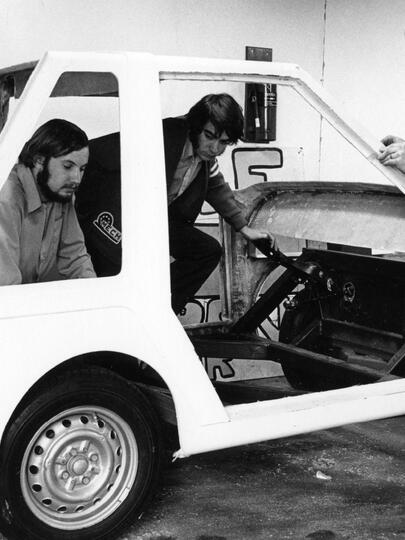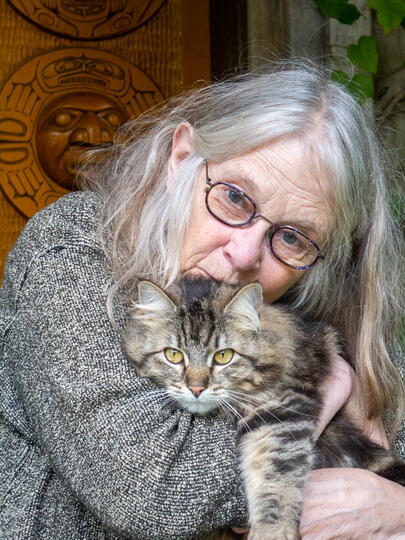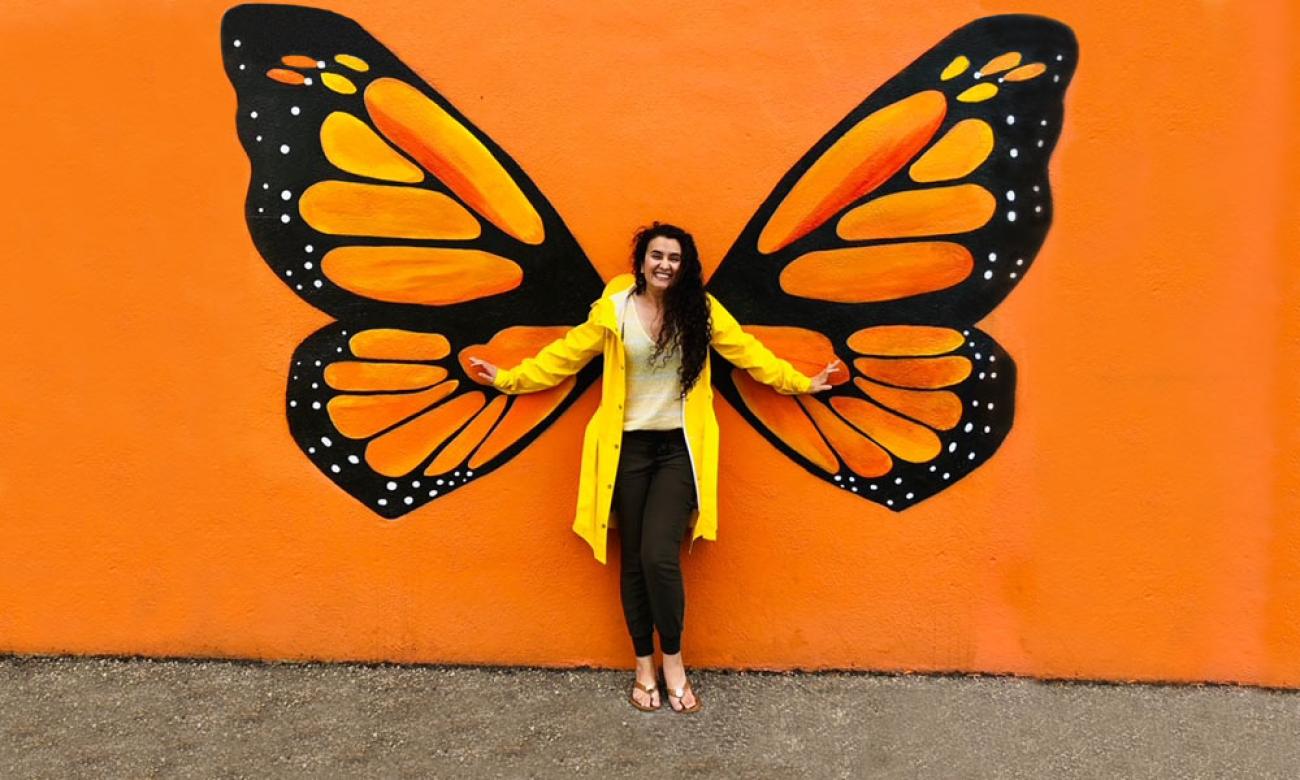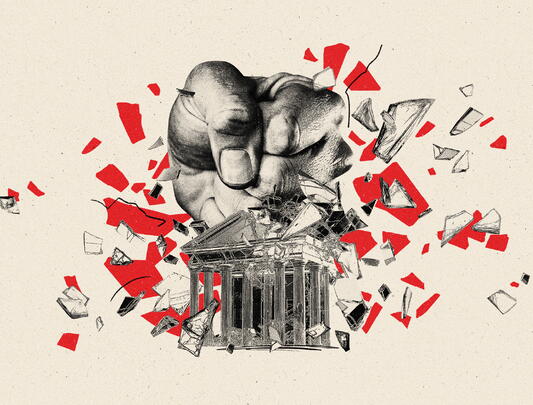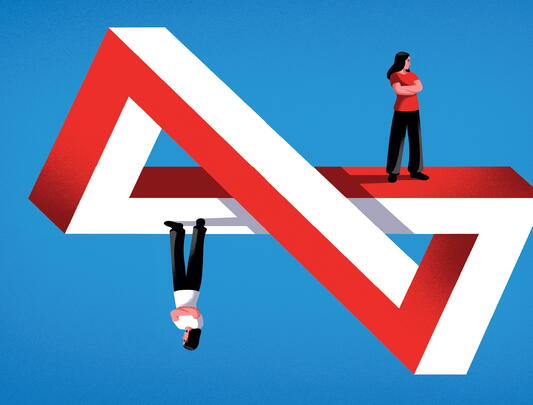Removing the barriers to health equity
A graduate of both UBC Vancouver and UBC Okanagan, Dr. Sana Shahram is an assistant professor at UBCO whose passion for change manifests in equity-driven community research.
Sana Shahram (BA'07, BSc'07, PhD'15) loves things to be constantly in flux. She loves the way each season in the Okanagan morphs into the next, as opportunities to express her passion for wakeboarding on local lakes make way for the activities on snowy ski slopes high above the valley’s winter clouds. She loves it when things change.
It’s no coincidence that with her passion for fluidity, the Faculty of Health and Social Development assistant professor finds herself working in many areas where change is paramount, such as health system transformation as well as anti-colonial and anti-racist public health systems.
“My research allows me the opportunity to introduce and offer different perspectives on health equity. It’s a vehicle to change the voices that are at the table,” says Shahram.
Her current exploration — funded by a Scholar Award from the Michael Smith Foundation for Health Research — is aptly titled: “Systems transformation for health equity: The PHAIRNESS Research Program.” PHAIRNESS is an acronym for Population Health Approaches to Implementing Research (k)Nowledge for Equitable Systems and Strategies.
Her research stems from a lifelong desire to play a part in influencing what society values, and to shine a light into the dark corners where inequities are hiding.
“I’ve always wanted to bring attention to the fact that some have the benefit of living their lives with dignity where others do not,” she says. “The success of systems of oppression come from their ability to make themselves invisible, so my research is primarily concerned with making those systems visible.”
Shahram works closely with public health institutions, communities, and people who are impacted by issues that present unnecessary barriers to accessing quality health care. She aims to identify where they conflict with the values of advancing equity in health care and beyond. “Then we can generate some examples of how we can intervene with those conflicts,” she says.
Born in Canada to parents from a different country with a different language and culture, Shahram says she had a unique frame of reference from a young age. “You have to become an interloper between systems when part of you is Canadian and part of you is not,” she says. “Learning from different perspectives draws your attention to the fact that there are multiple ways of knowing and doing. It becomes obvious when things we consider ‘big T’ truths are not serving us.”
An ever-questioning mind and desire to understand problems led Shahram to pursue a Bachelor of Science at UBC Vancouver. In an interesting turn of events, she walked away with that degree and a Bachelor of Arts in English literature.
“I’ve always felt that the best way to understand humanity and to understand the reasons we are the way that we are, is through literature,” she says. “It speaks to your feelings rather than to facts and it allows you to understand information using a completely different part of your brain. Having the two degrees together makes perfect sense to me, even though it may not make sense to most people.”
Shahram counts William Faulkner as one of her favourite authors. “Books like The Sound and the Fury, that tell the stories of people who are clinging to the past while society is changing around them, are stories that are still relevant today.” She notes an understanding that people value their traditions, but questions the cost when those traditions harm others. “There are real-world parallels in these stories of resistance towards justice — hanging onto an older era — where what the characters are really hanging onto is the oppression of other people.”
When it comes to COVID-19, Shahram says it has amplified inequalities in public health systems. “The people who have been left out of and harmed by policies like the removal of tent cities, are equally left out of and harmed by policies related to the pandemic,” she says. “Staying at home, that was only possible to those who have the privilege of having somewhere safe to go, or who didn’t have to go to a job every day in order to make ends meet. This in tandem with the ongoing drug overdose crisis has been chaotic.”
On the other side of the equation are those who are resistant to vaccines and public health orders. “I think the backlash that we’re seeing is the manifestation of the abject failure of our systems to instil in us any kind of collective mindset,” Shahram says. “We’ve also seen that there are groups of people who are willing to co-opt any type of language of oppression, invoking equity when it benefits them, with little concern for actual discrimination.”
Shahram points out the silver lining of the pandemic in regards to health equity: “When there’s a public health emergency, it opens a window of opportunity to bring attention to the reasons we need strong public health systems, why we need resources, and why we need the ability to work together. It’s sparking very important conversations about the type of future that we want.”
Having completed her PhD at UBC Okanagan, continuing an ongoing residency as Embedded Research Scholar with Interior Health, and owning a local business with her partner, Shahram has firm roots in the Okanagan. “It was really important to me to stay in the community where I’d established the partnerships, relationships, and engagement necessary to do community-based research.”
She is also looking forward to contributing to the further realization of UBC Okanagan’s commitment to creating a learning environment that promotes equity, diversity, and inclusion for all its community members.
For someone who works towards positive change, it’s no wonder that Shahram would describe herself as optimistic. “I’m very hopeful. In my professional career, there’s never been a time like right now, where there’s such opportunity and openness to have these hard conversations about things like white supremacy and anti-colonial action.”
“I’m particularly proud of the way the students at UBCO are leading this work, and are continuing to hold us accountable. I’m hopeful that we will rise to the occasion and make the students and the next generation proud.”





